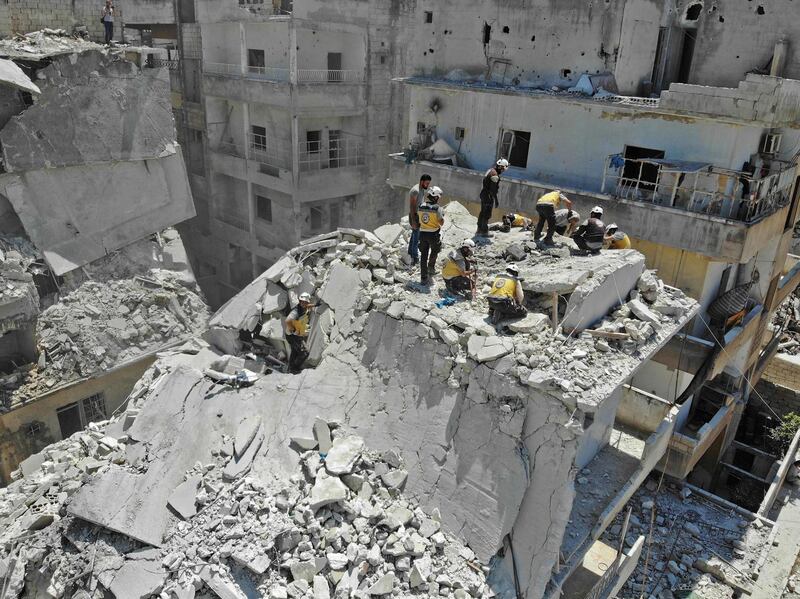While populist politicians from Turkey to Lebanon continue to push for the return of Syrian refugees, the violence in the country's civil war intensifies. Since April, the Syrian regime and its Russian ally have launched an offensive on the north-western province of Idlib, killing more than 740 civilians and internally displacing 400,000 people. In the past 10 days alone, air strikes have caused the death of more than 100 people – one in four of them children. Yet, the international community appears to remain unmoved by their plight.
UN human rights chief Michelle Bachelet has described the prevailing mood as one of "international indifference", making it clear that the major global powers involved in the conflict have completely failed ordinary Syrians.
Ruled by Hayat Tahrir Al Sham and other extremist groups, Idlib is Syria’s last rebel stronghold. Accordingly, the Syrian regime and Russia have denied the deliberate targeting of civilians and claim only to be fighting terrorism. However, the reality on the ground tells another story. Regime and Russian airstrikes have hit medical facilities, schools, markets and bakeries. In the town of Saraqib, the local market was been hit twice in one week, leaving eight people dead. These attacks have so far failed to bring down the extremist groups the regime claims to be fighting against.
Meanwhile, Turkish President Recep Tayyip Erdogan said on Friday that his country is dedicated to destroying a "corridor of terror" in North Syria. Ankara's aim, however, is not to fight extremists such as Hayat Tahrir Al Sham and ISIS, but rather to crush Syrian Kurdish groups operating at the border. Mr Erdogan has threatened to launch military action in Syria if the US and Turkey fail to establish a safe zone in this area. The two countries are now discussing the creation of a border zone that would be clear of Kurdish fighters, in order to prevent a Turkish offensive. If these efforts fail, Syrian Kurds will be at risk of Turkish attacks, especially given that the US has withdrawn most of its troops from the country following the fall of ISIS in March.
The countries involved in Syria’s war have many reasons to join or leave the conflict – the majority of them looking after their own best interests. But for Syrians, the end result is the same. In Ms Bachelet’s words, the crisis in Idlib amounts to an abject “failure of leadership by the world’s most powerful nations”.





